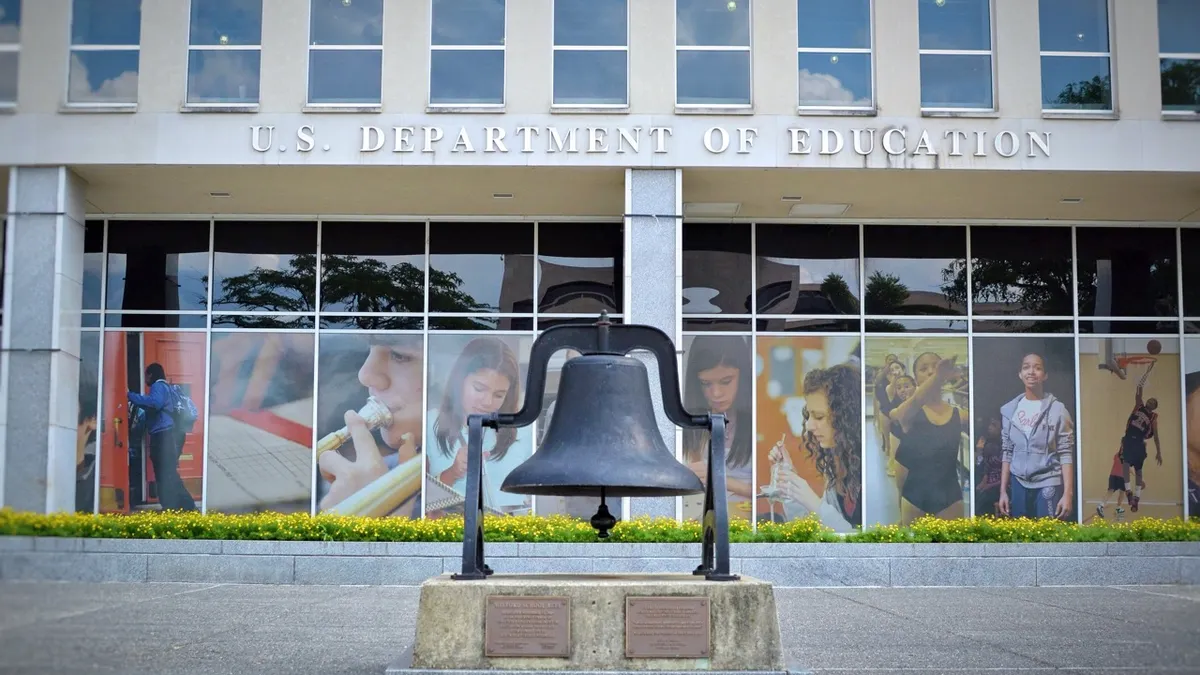Dive Brief:
- The U.S. Department of Education is speeding up its review of state accountability plans required under the Every Student Succeeds Act — in some cases despite the states refusing to make adjustments based on prior feedback — after rethinking its strategy following pushback for an initially heavy-handed approach, Education Week reports.
- Connecticut, Delaware, Louisiana, Nevada, New Jersey and New Mexico have all seen their plans approved this month, with 10 other states and the District of Columbia having received formal critiques, while the final 34 plans are expected to come in around September.
- In Tennessee's case, the state responded to previous feedback by suggesting the "supersubgroup" of black, Hispanic and Native American students it created would serve more students, while Connecticut refused all together to change its "average scale score" approach of converting grades to a uniform scale like 1 to 100 for comparison, Education Week reports.
Dive Insight:
The bipartisan passage of the Every Student Succeeds Act was heralded primarily for its focus on returning decision-making power to states and local districts, moving away from the heavy-handed, top-down federal mandates of the Bush-era No Child Left Behind Act that extended into a number of Obama administration programs like Race to the Top. Part of the impetus for the law's limiting of federal power was a sense on the Republican side of the aisle that Secretary of Education Arne Duncan had wielded too much power, and it aimed to rein that in for those holding the role in the future.
But the U.S. Department of Education's initial high level of scrutiny raised the ire of a number of lawmakers, including Sen. Lamar Alexander (R-TN), chair of that chamber's education committee and a co-author of ESSA, who had all but guaranteed states would see minimal roadblocks. The department seems to have taken that Congressional concern to heart, especially after receiving pushback for a critique that suggested Delaware's plan wasn't ambitious enough.
With the law's implementation beginning this school year, the department also likely doesn't want to fall behind on the approval process. The extent to which its scrutiny persists, and how welcome it may be by various stakeholders and interest groups given the law's intentions, remains to be seen.











